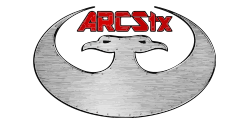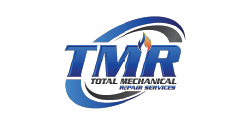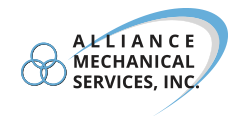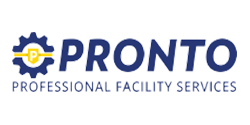The Importance of Spring Season Planned Maintenance for Commercial Kitchens
Restaurant kitchen equipment is subjected to heavy use and wear and tear on a daily basis. The harsh environment of a commercial kitchen, with its heat, grease, moisture and chemicals can take a toll on the most durable of appliances. Regular maintenance is necessary to keep equipment functioning optimally, prevent breakdowns, and avoid costly repairs or replacements.
Spring is an ideal time for planned maintenance. It allows restaurants address any maintenance issues before the busy summer season arrives. By addressing any maintenance issues during the slower spring months, you can ensure that your kitchen is running at peak performance when you need it most. Additionally, a thorough spring cleaning of your kitchen can help reduce the risk of foodborne illness and maintain a safe and hygienic environment for your staff and customers.
What major kitchen equipment should receive spring maintenance by a professional technician?
Refrigeration Units. Refrigeration units, including walk-in coolers, freezers and reach-in refrigerators, are critical to food safety in a commercial kitchen. Spring maintenance should include cleaning the condenser coils, fans, evaporator pans and drain lines, as well as checking the temperature controls and replacing worn parts. It’s also important to inspect for potential safety hazards such as loose wires, frayed power cords or gas leaks.
Ovens. Commercial ovens, including convections ovens, combi ovens, pizza ovens and deck ovens, are the heartbeat of a smoothly functioning back-of-house. Spring maintenance should include cleaning the interior and exterior of the ovens, checking the door hinges and seals for any signs of wear or damage, and inspecting the burners and pilot lights for proper operation.
Grills. Grills tend to accumulate grease and food particles over time. Grease buildup can cause smoke and create and unpleasant odors, which can affect the overall cooking environment in the kitchen. Spring maintenance should include cleaning the grates and removing any accumulated grease, checking the gas lines and connections for leaks, and inspecting the burners to ensure that the grill is cooking food evenly and at the right temperature.
Fryers. Fryer maintenance is also important for safety reasons. A buildup of grease and food particles can create a fire hazard, and damaged parts can create other safety hazards, such as electrical problems or gas leaks. Spring maintenance should include a thorough cleaning of each fryer to remove any grease buildup and an inspection of the fryer’s safety features to ensure they’re functioning properly.
Dishwashers. Commercial dishwashers are responsible for cleaning and sanitizing dishes, utensils and other kitchen equipment, and it’s crucial that they are functioning properly to maintain the hygiene of the kitchen. Spring maintenance should include cleaning the spray arms and filters, checking the water temperature and pressure, and inspecting the door gaskets and seals for any signs of wear or damage.
Steamers. Spring maintenance should include cleaning the interior and exterior of steamers, checking the water level and drain for proper operation, and inspecting the heating elements for any signs of wear or damage. Over time, minerals in the water can build up and create scale inside the steamer, affecting the steamer’s performance and energy efficiency. Spring maintenance should include descaling steamers to remove any scale buildup.
Does My Kitchen Ventilation Equipment Need Professional Spring Maintenance?
Restaurant ventilation equipment plays a crucial role in maintaining the air quality and temperature in a commercial kitchen. Proper ventilation helps remove cooking fumes, smoke and excess heat from the kitchen, ensuring a safe and comfortable working environment for the staff and customers. Therefore, it’s important to include restaurant ventilation equipment as part of regular spring maintenance.
Here’s what ventilation equipment should be serviced at a professional spring maintenance visit:
Exhaust Hoods and Ducts. Exhaust hoods and ducts should be cleaned thoroughly to remove any grease buildup, which can pose a fire hazard. Grease buildup can also reduce the efficiency of the ventilation system, making it less effective in removing cooking fumes and smoke.
Fan Motors and Belts: Your ventilation system’s fan motors and belts should be tightened or replaced if necessary, and the motor should be lubricated to prevent wear and tear.
Filters. All filters should be inspected and cleaned or replaced if necessary. Dirty filters can reduce the efficiency of the ventilation system, making it less effective in removing cooking fumes and smoke.
Make-Up Air Units. Make-up air units supply fresh air to the kitchen to replace the air that’s being exhausted. Proper functioning of the make-up air unit is essential for maintaining a comfortable working environment and preventing negative pressure in the kitchen.
Is Professional Spring Planned Maintenance for Commercial Kitchens Worth It?
The answer is yes, very much so! You might be surprised to know that regular maintenance saves money in the long run and can be customized to fit your budget and equipment needs. Some of the most important benefits include:
- Increased Lifespan of Equipment. By keeping equipment well-maintained, you can extend its the life expectancy of most major units by up to 30% simply by reducing the wear and increasing efficiency. For example, if the average life span of a refrigeration unit is ten years — that’s three additional years of service!
- Improved Safety. Regular maintenance can help identify potential safety hazards, such as gas leaks, electrical issues or faulty equipment. By catching these problems early, you can prevent potential accidents and injuries in your kitchen.
- Reduced Energy Costs. Well-maintained equipment operates more efficiently, reducing energy costs and lowering your utility bills. When planned maintenance is performed on energy-guzzling refrigeration units, energy costs can be reduced by as much as 10%!
- Improved Equipment Performance. Regular spring maintenance helps to keep equipment in top condition, ensuring that it operates efficiently and effectively. This ensures that the quality of the food remains high, reducing the risk of food waste, unhappy customers and lost revenue.
It’s important to follow the manufacturer’s instructions for maintenance and cleaning of specific units, and to schedule regular maintenance by a professional technician to keep your commercial kitchen equipment running smoothly and efficiently.
If you haven’t scheduled a spring maintenance visit from a Tech24 technician, do so today!

























